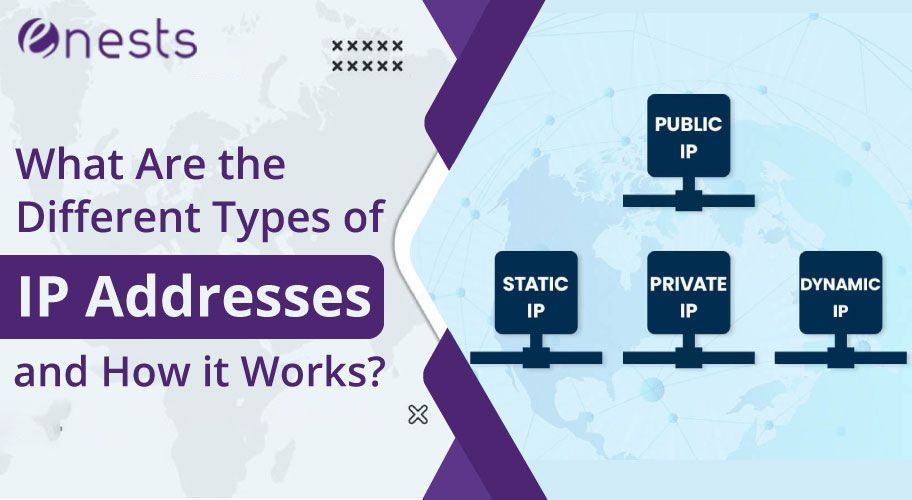IP (Internet Protocol) addresses are the numerical labels assigned to each device connected to a network that uses the Internet Protocol for communication. IP addresses allow devices to communicate with each other by identifying the source and destination of data packets sent over the network. There are several types of IP addresses, each with different characteristics and purposes. If you have questions like what is my IP address, types of IP address & how they work, we will look at all these questions in this article.
Static IP Addresses
A static IP address is a unique numerical label assigned to a computer or device by an Internet Service Provider (ISP). This address is permanently associated with the computer or device and remains unchanged until the user manually updates it or their ISP changes it. Static IP addresses are useful for maintaining a persistent connection with a specific machine, like a gaming console or web server.
With static IP addresses, all communication requests from the device can be quickly routed to the correct address and help maintain reliable, consistent connections. They also provide more security than dynamic IP addresses since they are much harder to guess. "What is my IP address?" is an important question, and "What is My IP.live” can help you to find your IP free of cost.
Dynamic IP Addresses
Dynamic IP addresses are temporary internet protocol (IP) addresses assigned to a device or computer from an Internet Service Provider (ISP). This type of address is automatically assigned and changes each time you connect to the network, providing users with an extra layer of privacy. Dynamic IP addresses differ from static IP addresses, which remain the same every time a device connects to the internet.
A dynamic IP address is beneficial when the user doesn't want to be identified or tracked. Further, dynamic IP addresses help ISPs manage their resources more efficiently. When a device is connected to the network, the ISP assigns it an IP address from a pool of available addresses. Once the device disconnects, the ISP reclaims the address and reuses it when another device connects. This process makes it difficult to trace activities back to specific individuals, providing users with more online privacy.
Shared IP Addresses
A shared IP address is a type of Internet Protocol (IP) address used by multiple devices on the same network. This type of address is commonly used for shared web hosting, allowing multiple websites to use the same IP address.
When a user requests a website hosted on a shared IP address, the server identifies the website using additional information such as the domain name. With a shared IP address, all of the websites associated with it appear to come from the same source. This can be beneficial when managing resources; however, it can also pose security risks as malicious traffic is more difficult to block.
Virtual Private Network (VPN)
A Virtual Private Network (VPN) is a private network that enables users to access the internet and keep their data private securely. VPNs are usually implemented through tunnelling protocols, which provide an extra layer of security to all data transmitted over the internet. When using a VPN, all data traffic is routed through a secure tunnel, making it impossible for anyone to intercept or gain access to the information. This means that users can securely access web content from any location without having to worry about their data being compromised.
